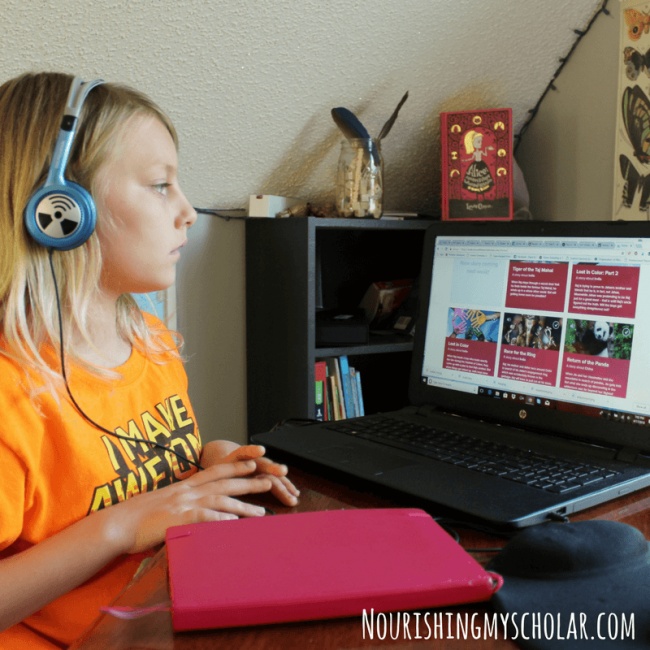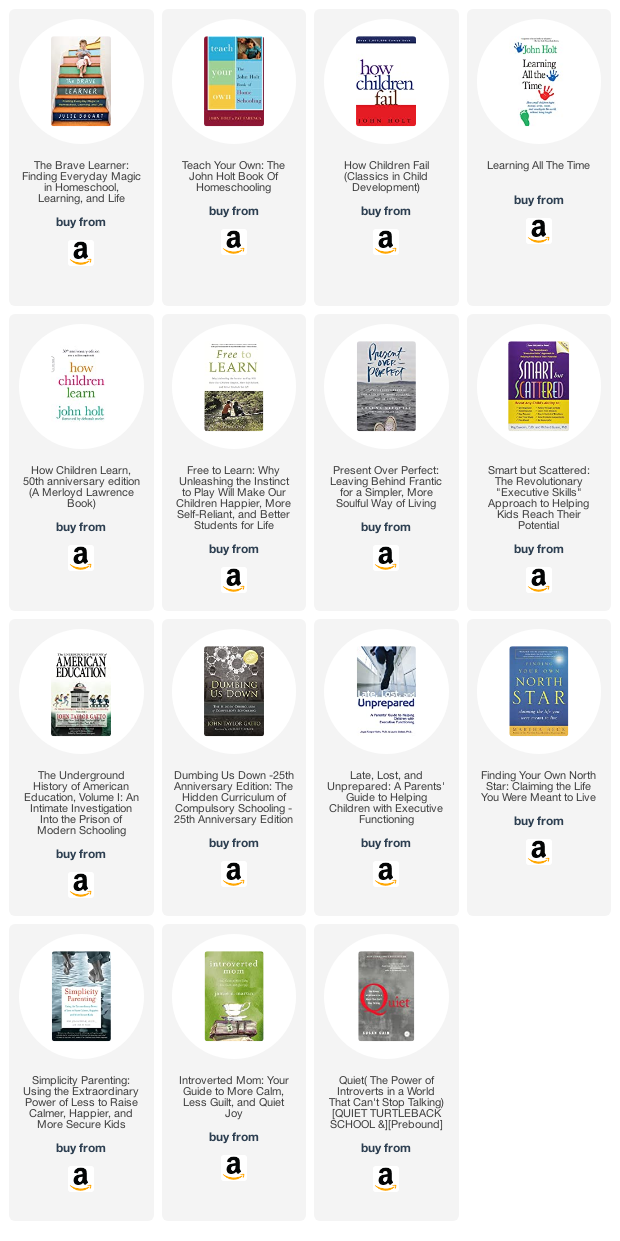Are you a first-time homeschooler or thinking about homeschooling? Are you wondering about how to get started? Here are 10 things you need to know to homeschool.
This post was originally published November 3, 2015, but has since been updated.

This post may contain affiliate links. Please read my disclosure statement for more information.
10 Things You Need to Know to Homeschool
1. Know Your State Homeschool Laws
The laws may include submitting a declaration of intent, yearly tests, attendance records, or portfolios. Know what is legally needed for your homeschool journey. You can find out more by going to your state’s department of education website, and this will give you the most accurate homeschool laws. You can also visit the HSLDA website and click on your state for more information.
2. Research the Different Homeschool Philosophies But Don’t Feel Like You Have to Follow Any of Them.
Homeschool is not Public School, and therefore it can look and feel however you want it to. I remember when we first started. I felt like I had to follow everything exactly. I was so afraid of messing up!
Guess what? If we want to sleep until 10 am and then stay in our pajamas until 1 pm while eating popsicles, then we can do that. Or you can get up at dawn and have your lesson over and done before lunch. If we don’t finish a curriculum, or jump around based on interests, or decide that we don’t like a particular read aloud, it doesn’t mean we are messing up. We are tailoring our children’s education based on their needs. I don’t know about you, but I want to focus on the relationships and connections with my children and their academics.
I don’t believe there is any one way to do homeschool, and there are far too many options and grown homeschoolers who are happy and successful members of society. But, understanding the different approaches to home education can help you get started.
So, what sort of homeschooler do you believe yourself to be? Are you Classical, Montessori, Waldorf, Charlotte Mason, Traditional, Unschooling, Thomas Jefferson Education, Eclectic or Unit Study? I love this quiz from Eclectic-Homeschool. Click here to take their quiz. It will give you an idea of where you stand.
We identify as Eclectic Homeschoolers with Unschooling, Charlotte Mason, Montessori, and Unit Study tendencies. Wow, that’s a mouthful!
Pretty much, we love books, games, and following our interests.
Most homeschoolers are not one pure philosophy but a blend of several or Eclectic in nature.
Use what works best for you and your children, and leave off the things that don’t.

10 Things You Need to Know to Homeschool
3. Find Your Tribe
We all need a tribe of people to help get us through those crazy times (Yes, there will be times when you question your sanity). Or to answer questions about local laws, education opportunities, or field trips.
Start by connecting with others like yourself. This could happen at a co-op, church, extracurricular activities, or functions that you and your kiddos may participate in.
Remember, if you can’t be authentic with people, they are not your people. Move on.
Online tribes can be fantastic alternatives to more traditional connections.
I’ve found some of my closest allies, cheerleaders, and homeschool friends in Facebook groups and blogs. Look for communities specific to your needs, be they giftedness, special needs, large family homeschooling, gameschooling, working homeschool moms, etc.
When you are feeling weary and need encouragement, I invite you to listen to Julie Bogart of Brave Writer. She has this Ah-Mazing ability to make you realize that you are enough and that you can do this! Her books, Homeschool Alliance, and Podcast are filled to the brim with inspiration and wisdom.
The Homeschool Sisters Podcast is another excellent place to turn when homeschooling gets tough and you feel like you’re messing up. These two ladies are extraordinary at keeping it real while helping you find joy amid homeschooling chaos. They are right there in the trenches of homeschooling with you.
Also, the Simple Homeschool has the most inspirational blog posts from other homeschool mamas that understand what we are facing every day.

10 Things You Need to Know to Homeschool
4. Know Your Child’s Learning Style
As a parent, you know your child better than anyone else. Every child learns differently and at different times. Understanding this can help you in deciding HOW to homeschool. Do they learn better with pictures (Visual), audio (Auditory), or movement (Kinesthetic)? Or do they learn best with a combination? Here is an excellent breakdown of the different learning styles from Weird Unsocialized Homeschoolers.
My kiddos prefer a combination of hands-on activities, great books, games, documentaries, and adventures!
We love to tumble down rabbit holes of learning, which is our way of saying interest-led learning!
It’s never perfect, but we love learning, which is something that I strive for.
5. Interest-led Learning
Everyone gets excited about something. We all have our unique passions, and your child’s interests are a fantastic place to start your homeschooling journey.
If you are unsure of your child’s interests, take them to the library and let them pick out any books they want. This is a great way to see where their interests lie. If you don’t already have a library card, get one!
Strewing is another excellent way to discover interests or spark new interests in your kiddo! It has this fantastic way of inspiring your child’s natural curiosity!
Passions and interests help unlock a love of learning.

10 Things You Need to Know to Homeschool
6. Curriculum or Not?
Curriculum is a fantastic tool for many homeschoolers. For others, it can be a waste of time and resources. Some homeschoolers prefer the structure that a boxed curriculum brings, knowing they are covering the “required” material.
Others (like myself) prefer the freedom to follow the interest of our children. Some homeschoolers piece together a curriculum, and then there are the homeschoolers who use a mixture of both. They may use a math curriculum but follow the interests of their children in all other areas. There are many combinations of curriculum use.
But many family’s new to homeschooling prefer to start with a boxed curriculum the first year or so to help ease their anxiety. That’s OK too! Use what works for you and your child.
10 Things You Need to Know to Homeschool
7. Remember to Be Gentle with Yourself and Your Child.
It takes time to figure out how you want homeschool to look for you and your family. Homeschool looks different for everyone, and we are all unique individuals with unique families.
Be gentle with your child as they transition as well. There is a saying in the homeschool community that it takes one year for you to find what works, and don’t be surprised if what works this year does not work next year.
So be gentle with yourself and your child.
8. Be Flexible.
Be flexible with your schedules, planners, curriculum, and your time. If something doesn’t appear to be working, take a pause. Change it and try something else.
Be flexible with your child. If they are not learning what you are trying to teach, change the way you teach or take a break from that subject for a few weeks. Or, they may not be ready to learn that particular topic. Remember, your child is constantly growing, learning, and changing.
Your homeschool must be flexible.

10 Things You Need to Know to Homeschool
9. Take Time for Yourself.
I’ve seen countless homeschoolers who give everything they have to their children with no regard for their well-being. In order to give to your family, you must have something with which to draw from, and you cannot provide something that isn’t there.
Take time for yourself. Exercise, yoga, knit, garden, go on a date with your significant other, whatever it is that you need. Recharge, because Self-Care is so very important.
10. Just Breathe.
We are all in the trenches of parenting and homeschooling. It can take time to get your footing and feel comfortable with all you face. Breathe. You can do this.
Here are some of my favorite books on parenting and homeschooling! I hope they encourage you as well.
You may also enjoy these homeschool posts:
-
Are You Unexpectedly Homeschooling
-
Homeschool Strewing as Part of a Child-Led Education
-
Scheduling for Your Homeschool When You’re Not a Schedule Kinda Girl
-
Our Eclectic Homeschool Curriculum Choices 2018-2019
-
8 Tips for Nature Study
-
Leaving Space in Our Homeschool Year
-
When You’ve Lost Your Homeschool Rhythm
-
Homeschooling with Joy and Sometimes on Impulse
-
The Importance of Imaginative Play in Early Childhood
-
When You Can’t Do Everything: Overcoming Homeschool Burnout




I love that homeschooling means we can be flexible. So much easier than when I was a high school teacher – not a lot of flexibility in the public school classroom.
So true!